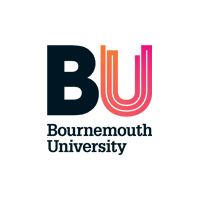 Following a detailed consultation with your staff and SUBU we are pleased to announce that, with immediate effect, BU will be establishing three new Faculties in place of our four existing Schools. Although in practice students will experience very few changes in their day-to-day study as a result of this move, we would like to explain the rationale for this decision.
Following a detailed consultation with your staff and SUBU we are pleased to announce that, with immediate effect, BU will be establishing three new Faculties in place of our four existing Schools. Although in practice students will experience very few changes in their day-to-day study as a result of this move, we would like to explain the rationale for this decision.
The development of Faculties will provide students with greater opportunities for collaborative study across the whole University, and establish a sound foundation for future investment in our existing areas of academic strength. It will also provide more scope to develop new subject areas. We realised many of these benefits earlier this year when BU successfully established the Faculty of Science & Technology.
In addition to the existing Faculty, the three new Faculties will be:
- Faculty of Media & Communication, incorporating the current Media School and Law.
- Faculty of Management, incorporating the current Business School and School of Tourism.
- Faculty of Health & Social Sciences, incorporating the School of Health and Social Care.
We understand that you may have further questions about this and have aimed to answer these below:
Why are we moving towards the Faculty structure?
We are proud that BU is maturing as an institution and developing our learning practices, research expertise and external reputation. We are well established in the Higher Education sector and the move towards Faculties is a positive change that reflects this maturity.
How were the Faculty names chosen?
The titles of the Faculties have been carefully considered, reflecting our strengths and contribution to society. They also formed part of our consultation with staff.
Will my course change?
No, there will be no change to the name or content of your course as a result of the move to Faculties.
Will my lecturers and tutors be affected?
All BU staff were consulted on the proposed move from Schools to Faculties, and the feedback we received indicates that the majority of people recognise the merits of the move and that it reflects our enhanced academic excellence.
There will be some changes to roles within the management structure, but the impact on your lecturers and tutors should be minimal. If you do have any concerns, please contact SUBU President, Chloe Schendel-Wilson at supresident@bournemouth.ac.uk
We want you to have the best possible experience while at BU and as part of the transition we are recruiting an additional 30 new academic staff to the new Faculties.
I applied to be in this School. Will I now be graduating from somewhere different?
All of our students graduate from Bournemouth University rather than a particular School or Faculty, and this will continue to be the case after we move to a Faculty structure. Your degree certificate will state the name of the course that you graduated from and that the degree is from Bournemouth University – there will be no change to your qualification or certificate as a result of the move.
For the majority of students the Faculty name will be closely aligned to your current School. For a small minority of students their courses will be aligned to a different Faculty and we will be in touch specifically about this.
When will this happen?
Although we are moving to a Faculty structure straight away, there is much still to be worked through over the coming months and we will keep you informed of relevant developments.
We hope you will join us in welcoming this evolution of BU and recognition of our academic excellence. If you have any further questions please contact SUBU President Chloe Schendel-Wilson.
 Bournemouth University
Bournemouth University